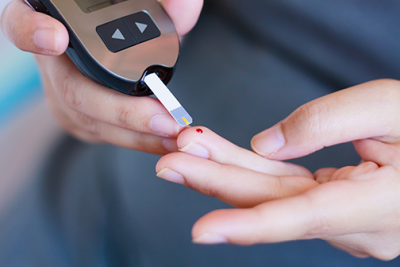- 404-363-9944
- Mon - Thur 8:00 - 5:00
- Fri 8:00 - 4:00
- Four Convenient Locations In Atlanta
November is National Diabetes Awareness Month
The month of November has been designated the National Diabetes Awareness Month, and the healthcare professionals at American Foot and Leg Specialists typically educate their patients on the many ways that diabetes can affect health other than just raising the “sugar” levels in the bloodstream. Diabetes is a systemic disease that can lead to many serious health conditions such as heart disease, stroke, circulatory issues, other autoimmune disorders, adverse skin changes, visual difficulties and even coma or death. It can be particularly detrimental to the feet and legs.
National Diabetes Awareness Month
The caring professional experts at American Foot and Leg Specialists in South Atlanta, GA, would like to stress that the proper care of diabetic feet is essential to avoid potential complications. These may include foot infections that could lead to gangrene and/or amputation. These additional health concerns can generally be prevented if patients take good care of their bodies, follow recommended lifestyle choices, and are closely monitored by their foot care professional at American Foot & Leg Specialists.
He goes on to explain that cigarette smoking contains nicotine which is a vascular constrictor which causes the artery to become narrower. In addition, smoking causes hardening of the artery. Therefore, it causes the blood not to flow very well to your feet and legs.
Diabetes is another major cause of peripheral arterial disease because high glucose levels in your blood creates damage in the vessel wall with build up of plaque. Peripheral arterial disease (PAD) happens when this buildup on the walls of blood vessels causes them to narrow. It commonly affects people with type 2 diabetes, who are also prone to high cholesterol and heart disease.

Examining the Two Forms of Diabetes and the Causes
Diabetes is a disease that causes blood-sugar levels to rise because of two main causes. Patients often develop a problem with being able to make the body’s insulin supply necessary for transforming broken-down foods into a body energy fuel source. This Type I diabetes occurs when the pancreas fails to create enough insulin to cover the eventual “sugar” molecules circulating in the bloodstream.
Another form of diabetes is usually called Type II diabetes; this occurs when the body is unable to use or absorb the blood sugar and convert it into the body fuel necessary for life and good health. Type I diabetes is usually diagnosed earlier in life, and type II typically strikes middle-aged to older adults who are overweight, have a family history of diabetes, and/or other risk factors. Both types of diabetes can be treated effectively to lessen the chances of severe complications.
Tips on How to Properly Care for Diabetic Feet from Atlanta-Based American Foot and Leg Specialists
All diabetics should take proper care of their feet to avoid complications. Many diabetics develop diabetic neuropathy that can cause the lower legs and feet to become numb. It is difficult to feel sensations in these affected areas, and many diabetics cannot feel when their feet or legs become injured. Everyday mishaps like blisters from improperly fitting shoes, bumps, bruises or cuts can become medical emergencies if not found and treated in time.
It is essential to thoroughly inspect your feet daily or have someone else do this task for you. Diabetics are urged to wash their feet every day as well. To help prevent foot injuries, the foot doctors from American Foot and Leg Specialists group, located in Atlanta, GA, also recommend wearing proper shoes and socks. Keep toenails meticulously trimmed, cutting the nails straight across the top. Ragged or roundly shaped toenails are far more prone to develop ingrown nails that can lead to infection and worse. Those with difficulty reaching their feet and higher risk diabetics should regularly see their podiatrist for foot and toenail care.
More Foot Care Recommendations All Diabetics Should Heed
Avoid wearing tight or ill-fitting shoes. Select footwear that offers comfort and supportive features. Also, avoid flip-flops and sandals that expose the feet to potential injuries and lack the proper support to prevent many future foot problems. Elevate tired or swollen feet above the heart to encourage better circulation and reduce inflammation.
For further information on November’s National Diabetes Awareness Month and/or related details on diabetic foot care, visit or call one of our 4 Georgia locations at Locust Grove, Fayetteville, Stockbridge and Forest Park.
Atlanta area American Foot and Leg Specialists proudly serves the entire South Atlanta Metro region including these counties:
- Clayton
- Cobb
- Douglas
- Henry
- Fayette and
- Fulton
Learn more regarding diabetic foot care details by browsing more of our podiatry educational materials.
Note: This article should never take the place of professional medical advice. Please call our friendly office staff regarding any questions. Also, consider making an appointment soon with one of our highly-trained doctors.
© 2018 American Foot & Leg Specialists. All rights reserved.

